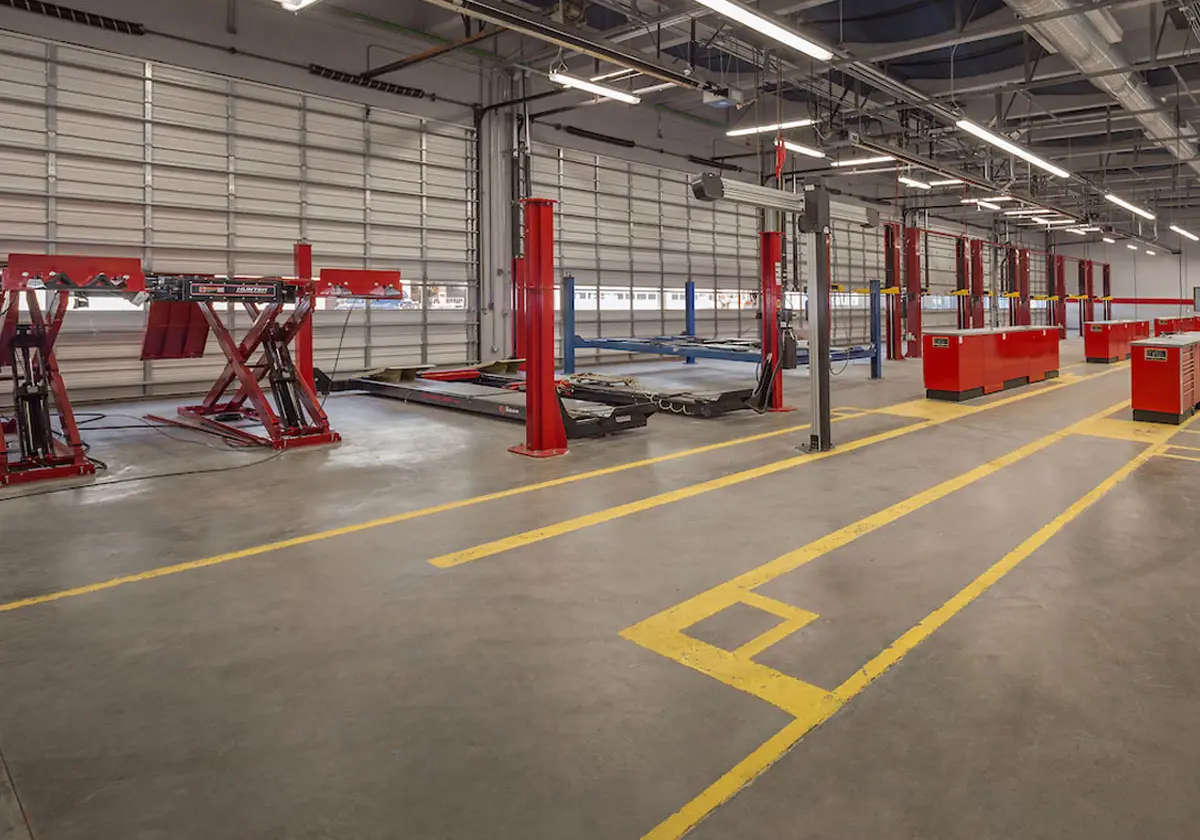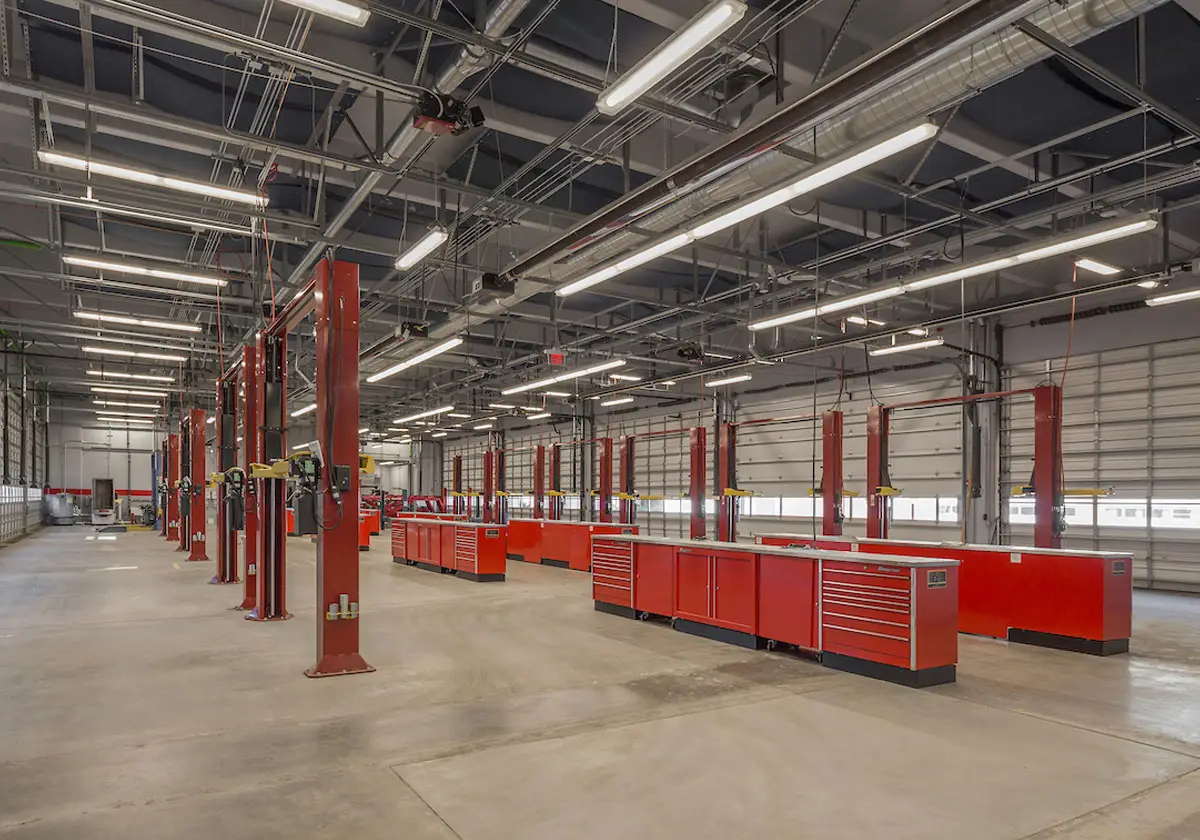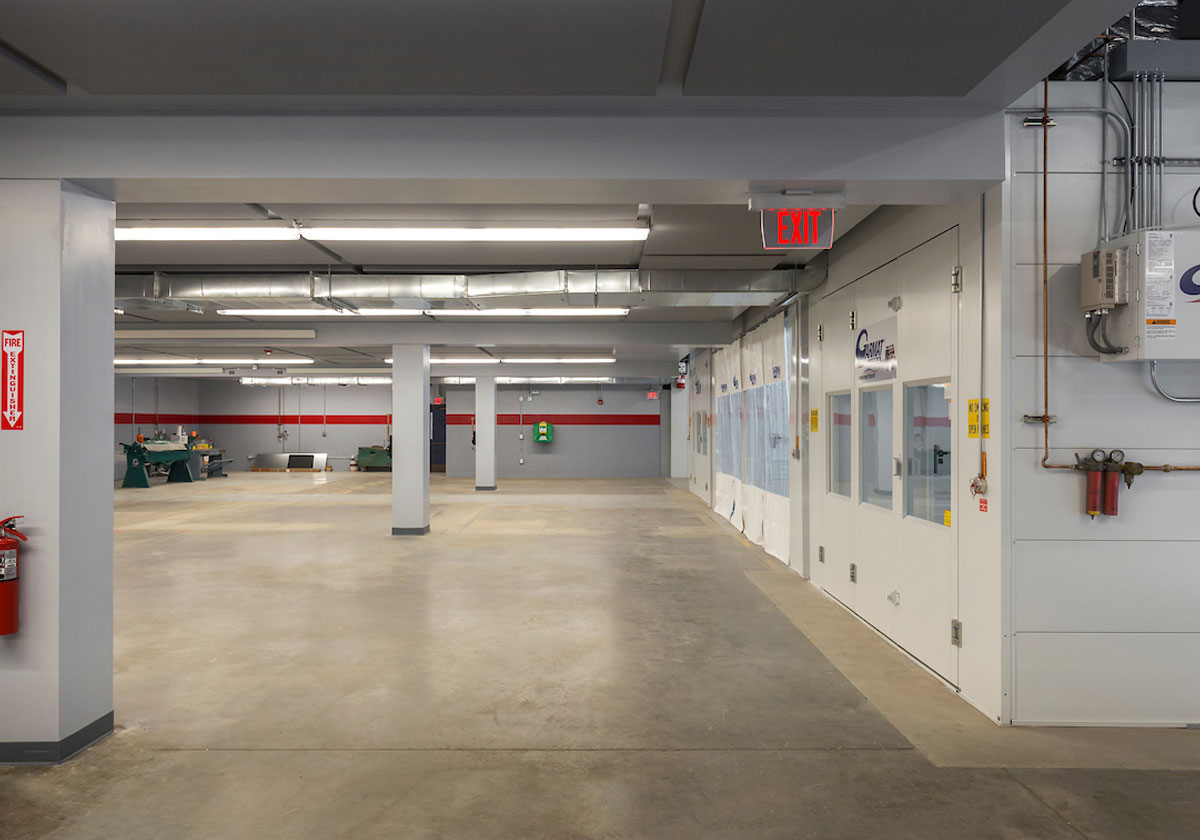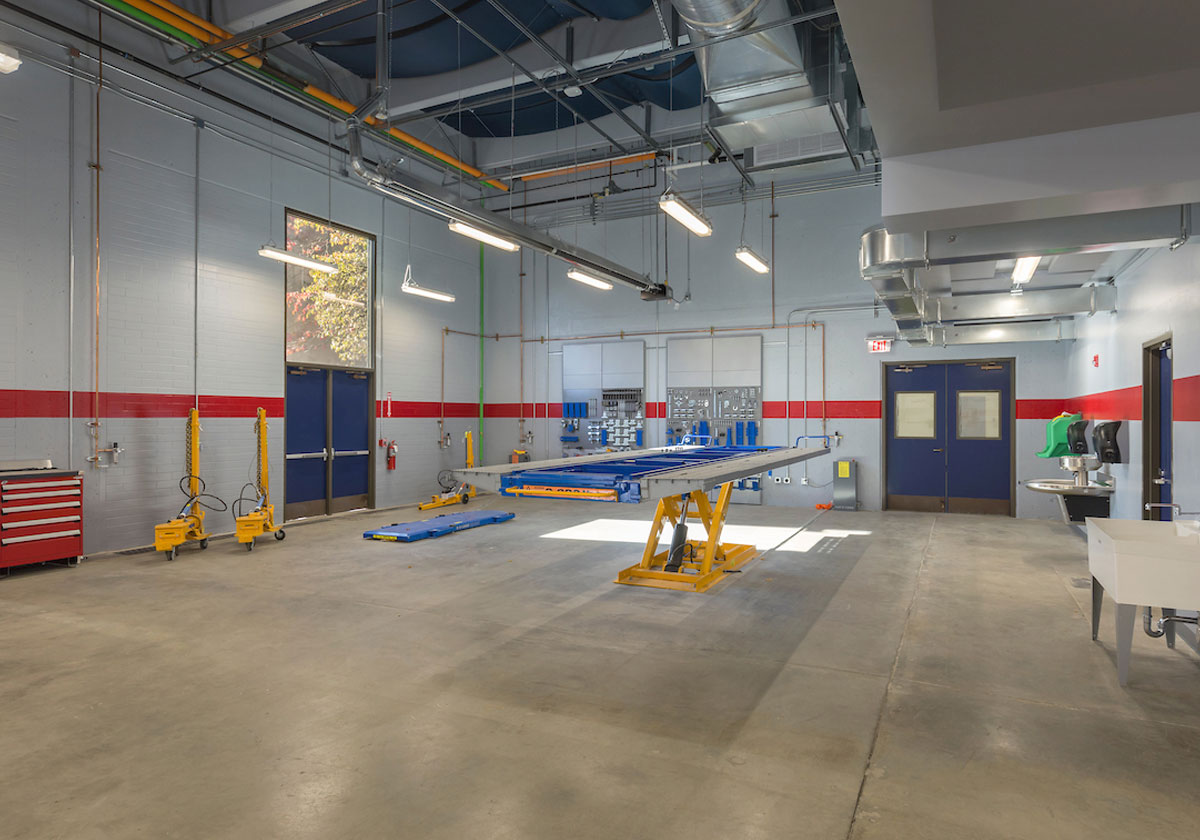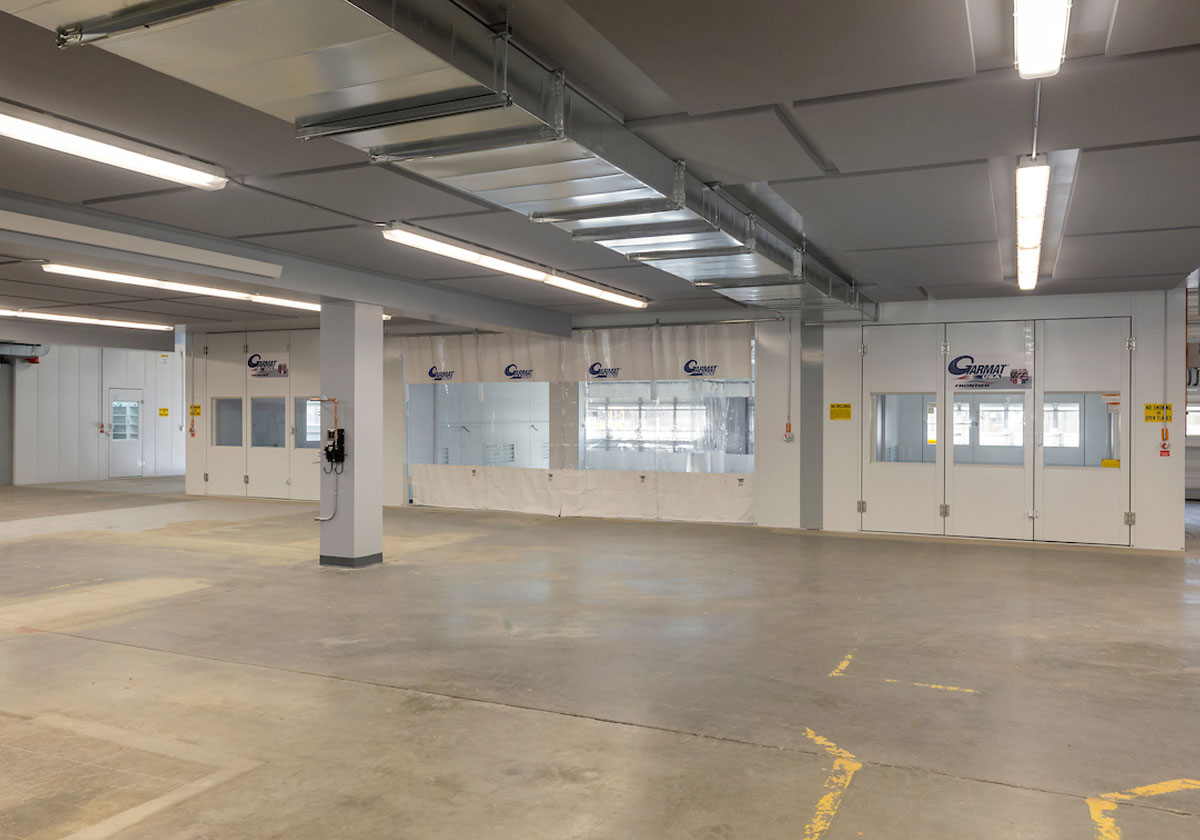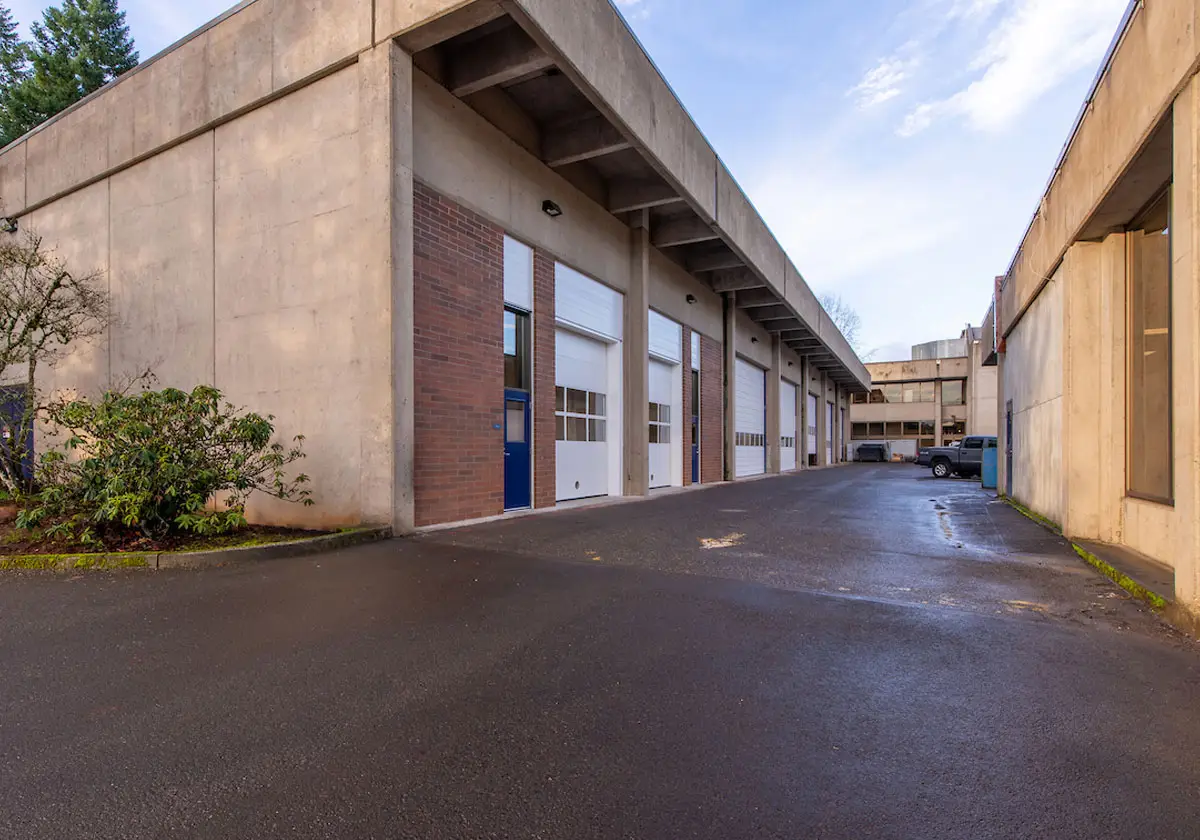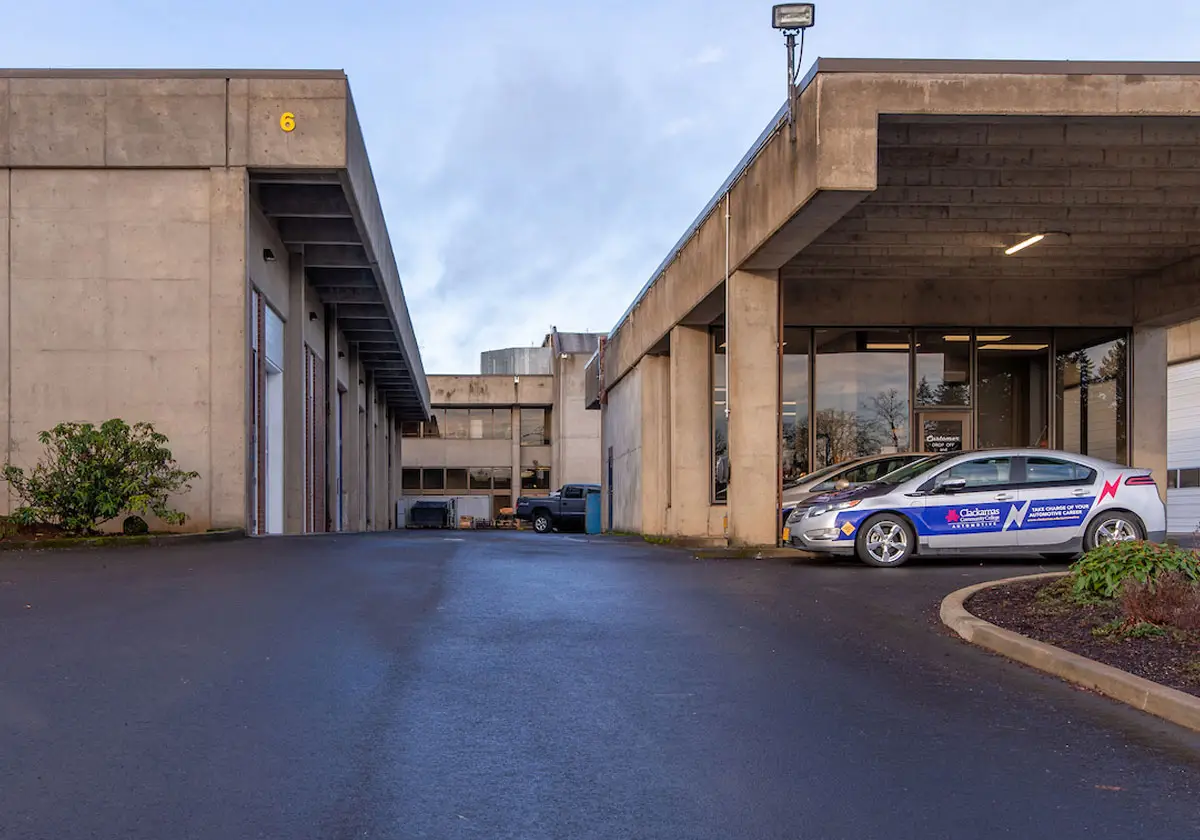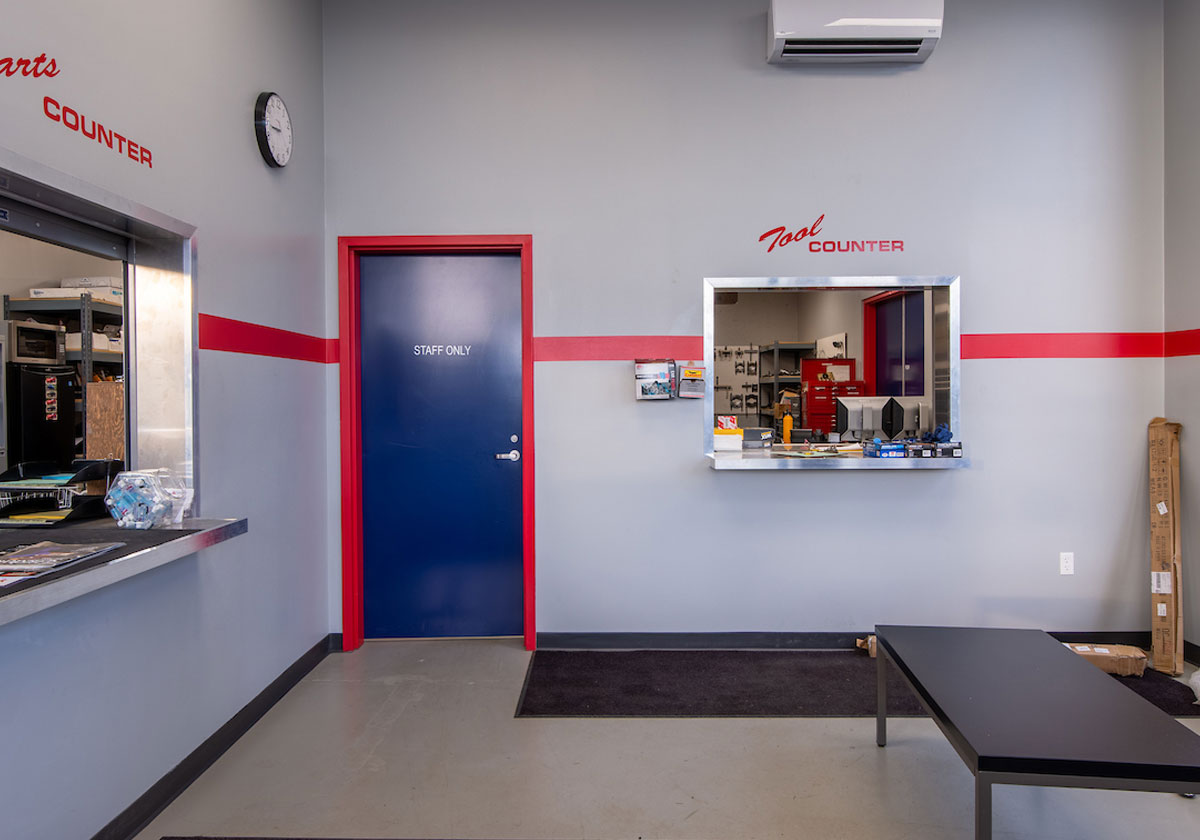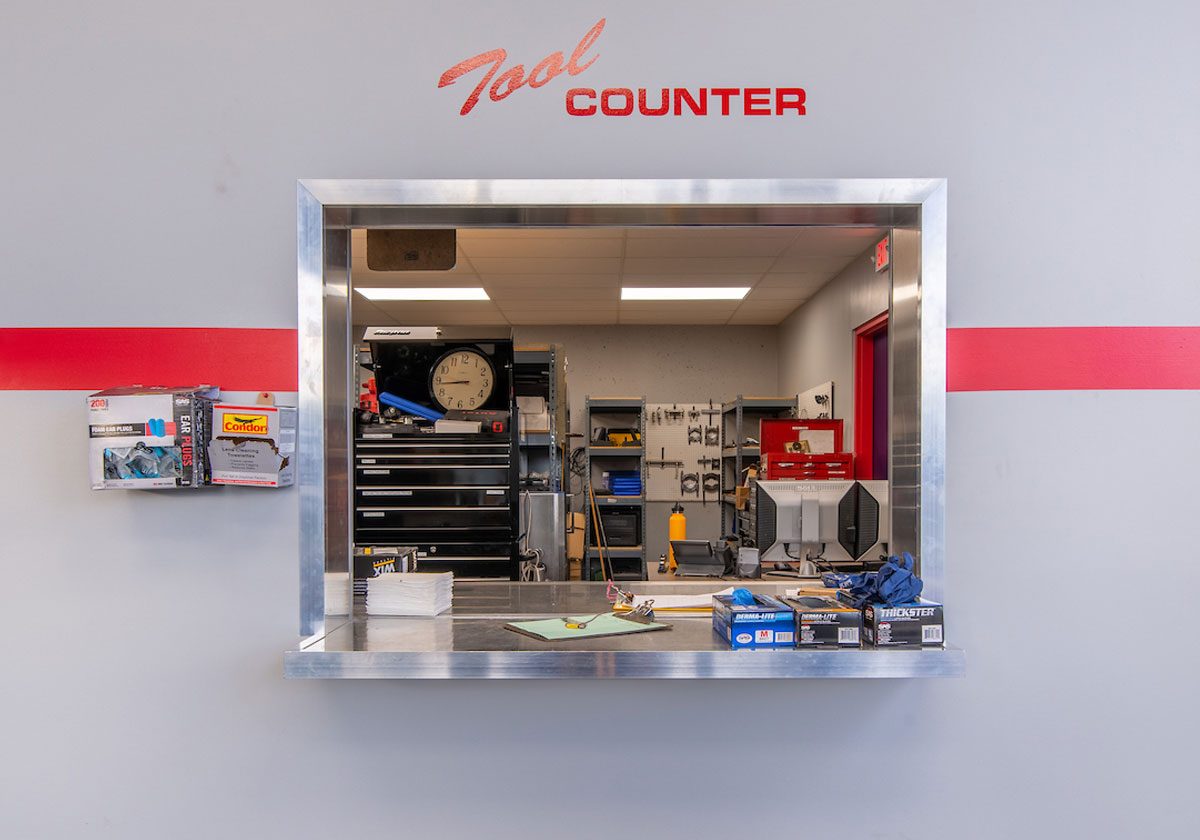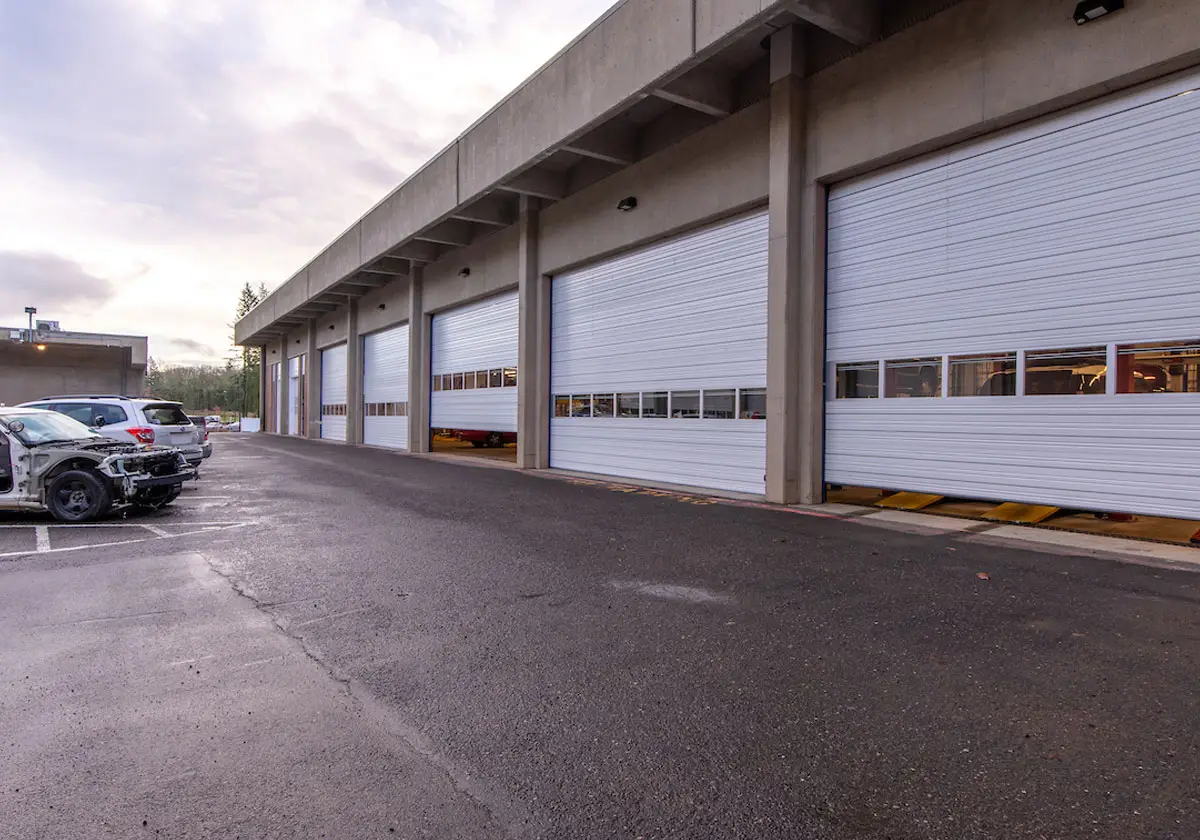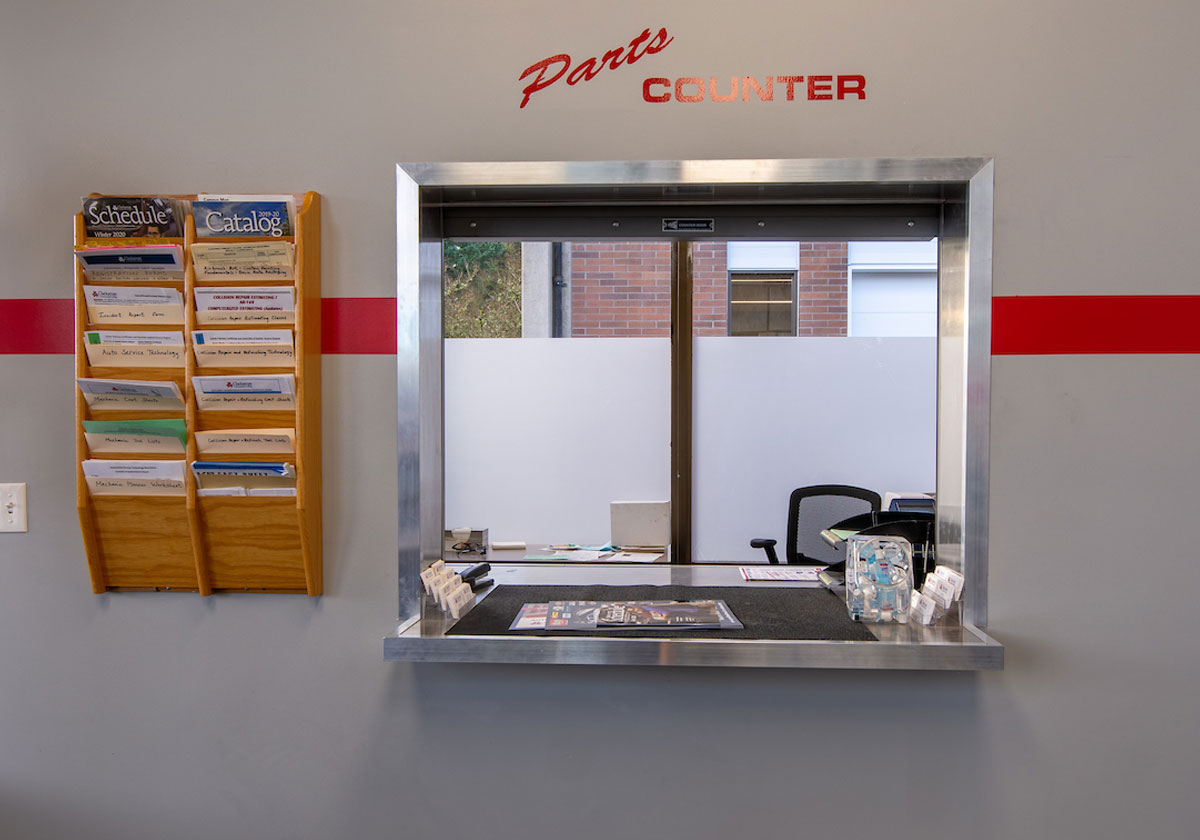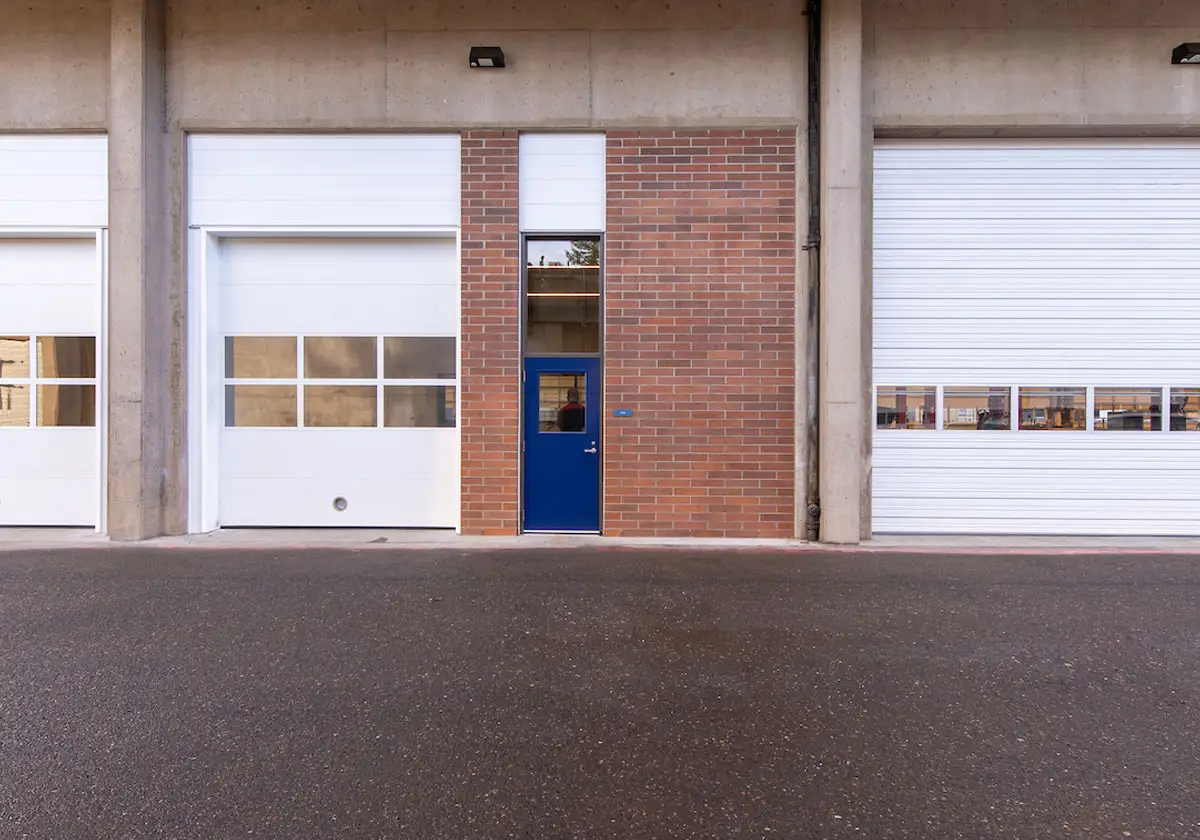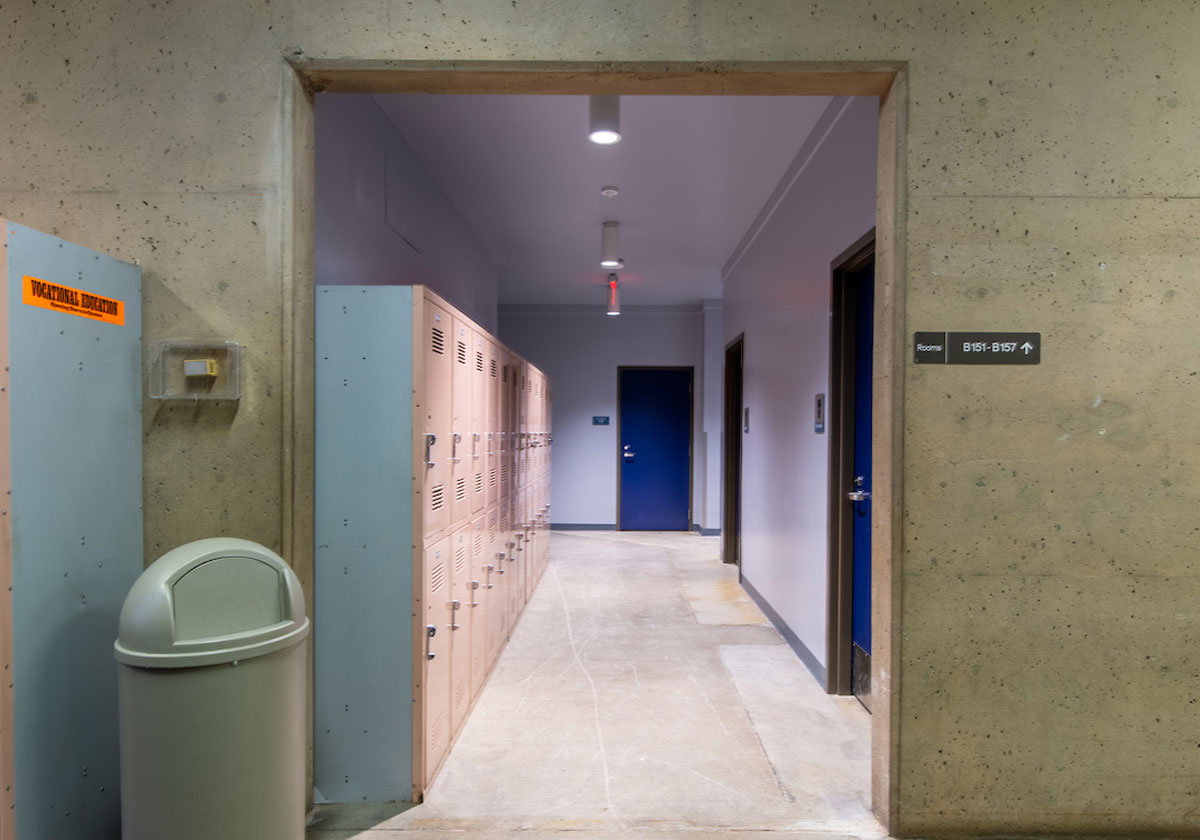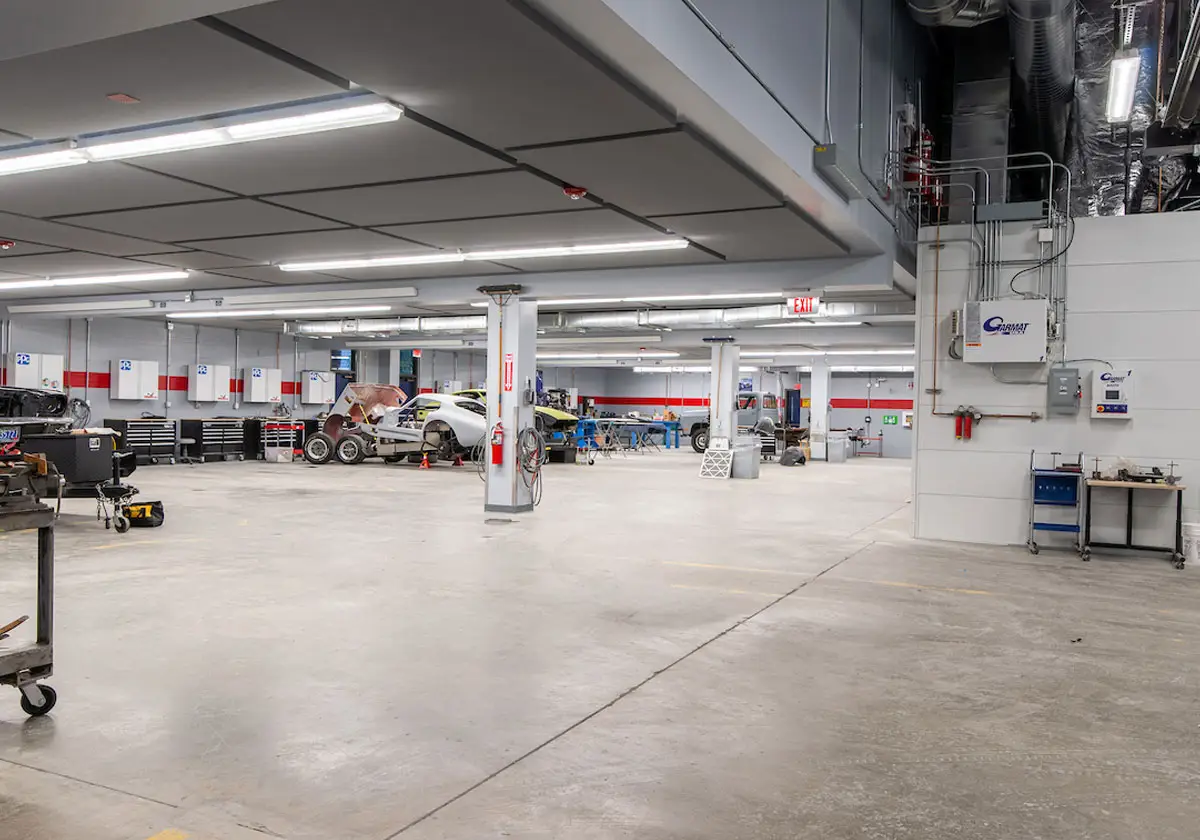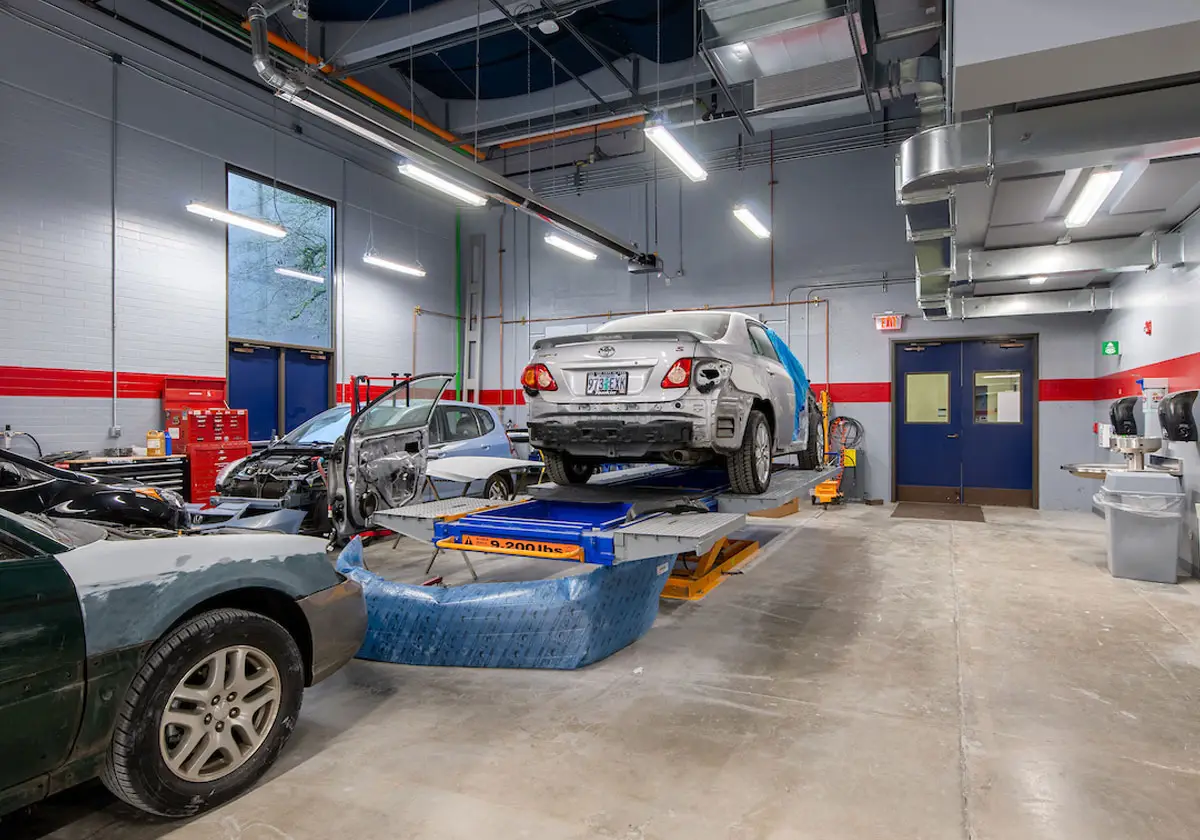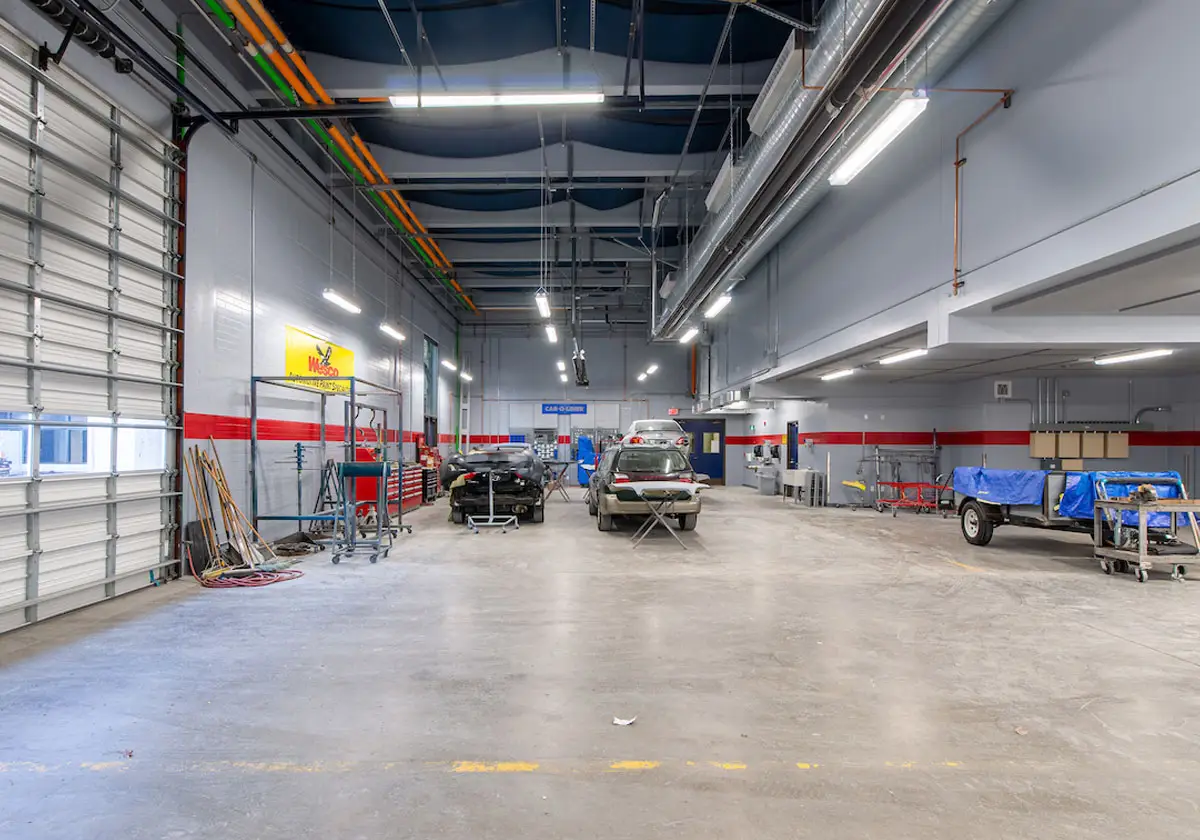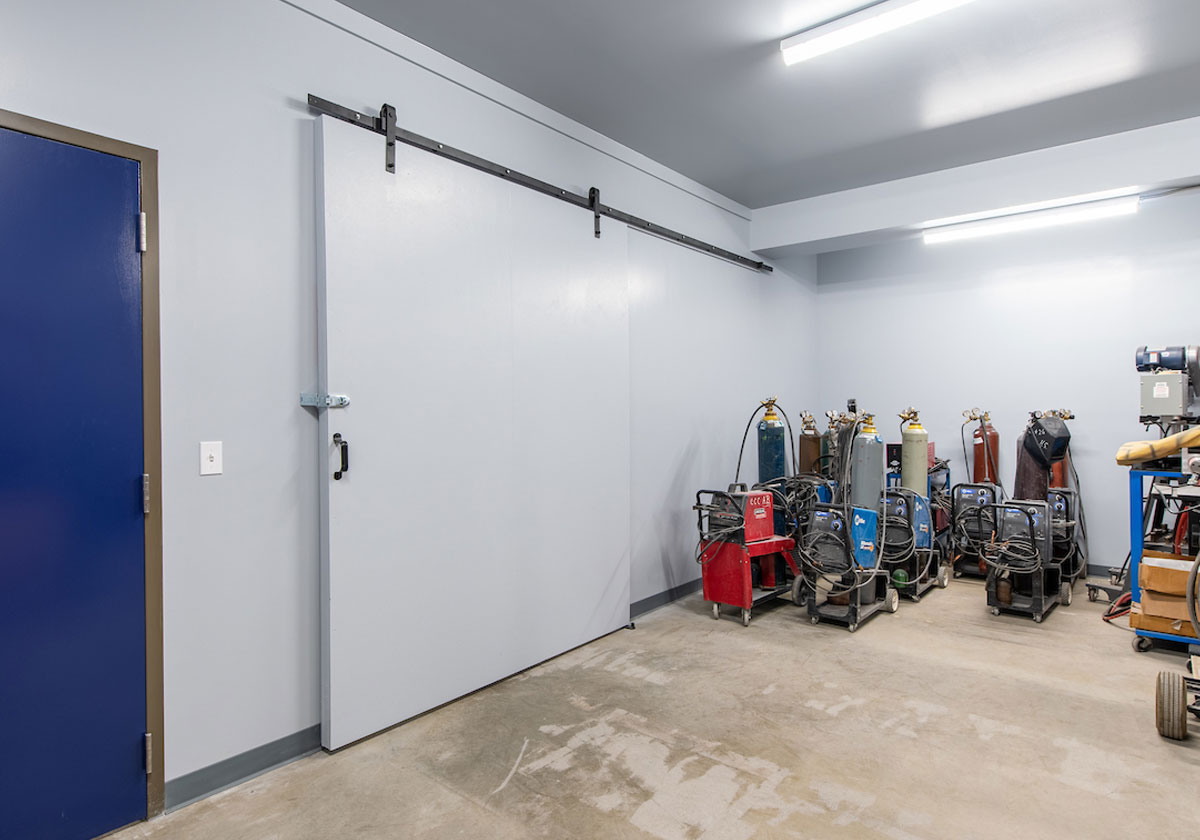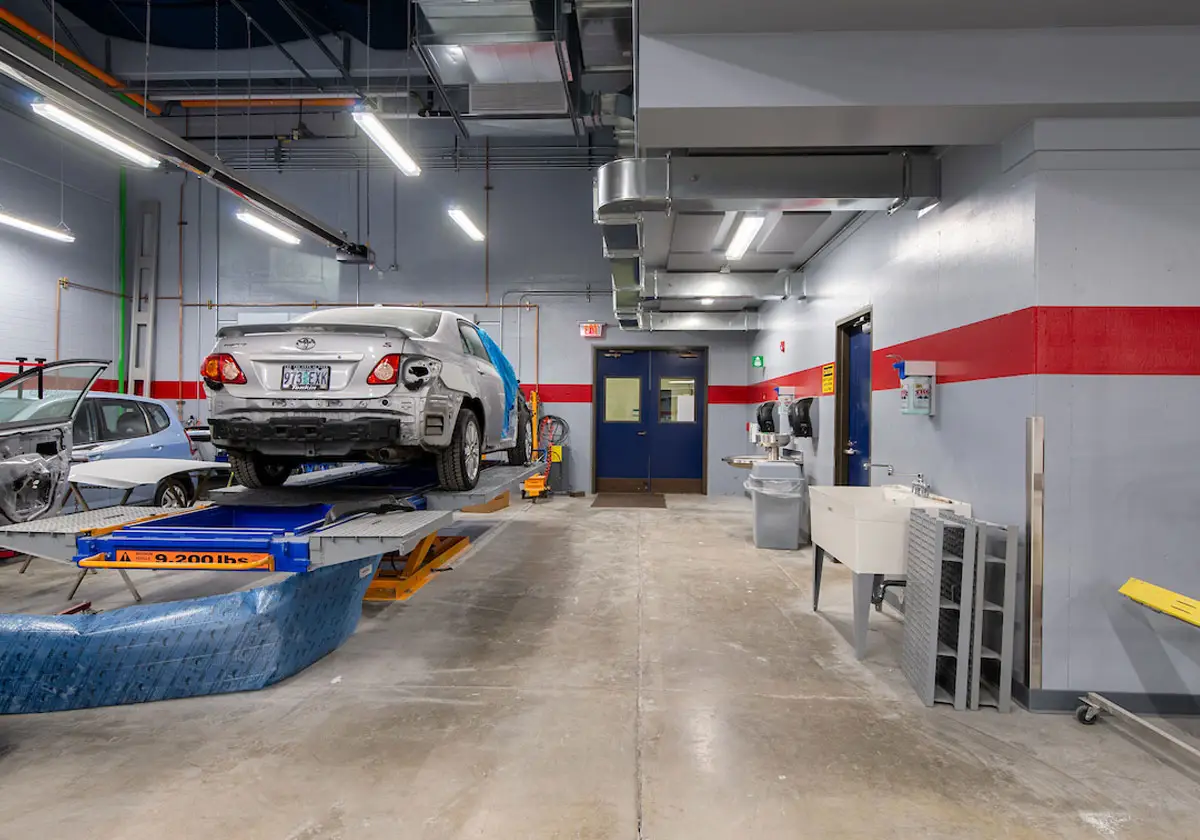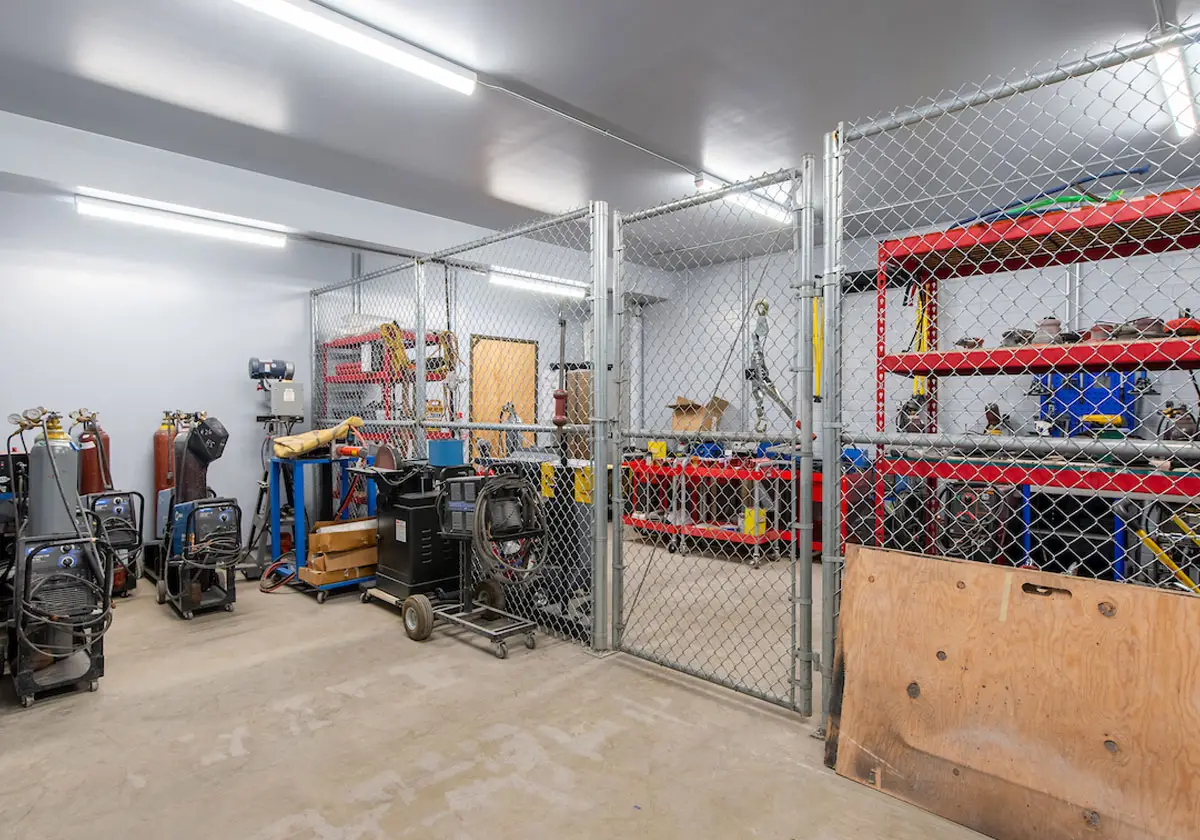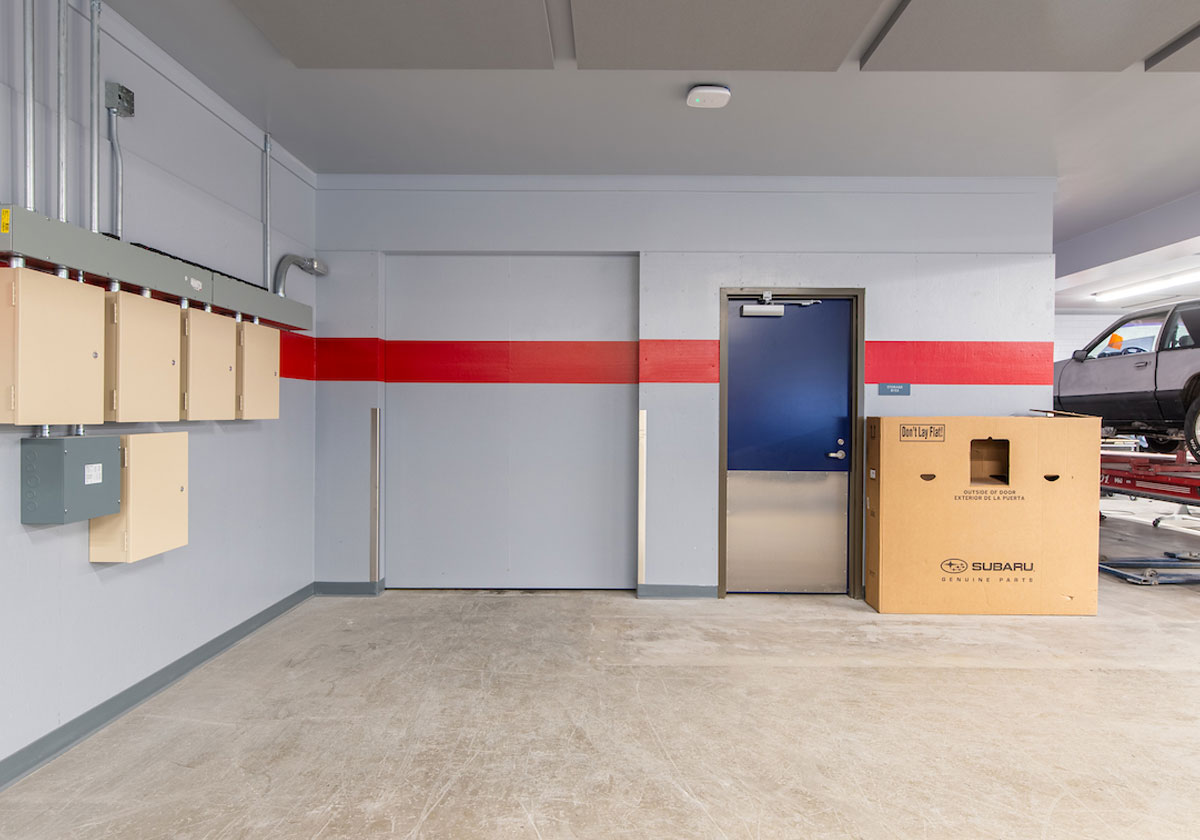Automotive Expansion and Remodel
Automotive department features:
- Expansion adds 12,600 square feet of shop, storage and classroom space
- Two 25'x30' flex labs
- 12 additional technician work stations
- Expanded high school program space
- Increased teaching, training and partner space
- Flexibility to meet changing training needs for regional partnership programs
- Informal learning/study spaces
- State-of-the-art technology
Project description
CCC offers numerous degrees and certificates in auto body/collision repair and automotive service technology. In January 2020, Clackamas Community College opened its garage bay doors to its newly remodeled and expanded Automotive Department. Students are now learning in modern facilities with state-of-the-art equipment, similar to what they will find working in the industry.
This expansion doubles the space for the college's high school program, where students from regional high schools come on campus and take classes with CCC instructors. In recent years, there has been a decline of secondary schools being able to offer career technical education (CTE) programs like automotive. So, CCC has stepped up and is partnering with area school districts to give students CTE opportunities.
The remodel and expansion on the CCC Oregon City campus provides students and instructors the space they need for a productive learning environment. Students learn hands-on in a space that mimics real shops. This gives them the experience they need to be fully prepared to enter the workforce.
The remodel and expansion comes on the heels of the college being certified by the Automotive Service Excellence Education Foundation. This program certification demonstrates that the college's automotive department instructors provide industry-approved instruction on modern equipment with today's safety standards. This is the highest level of accreditation recognized by the National Institute for Automotive Service Excellence.
The $5.7-million project is funded through a bond. Voters approved a $90-million bond measure in November 2014 to expand opportunities for students and to increase the skilled workforce in the community. This funding was supplemented by $32 million in match funding from the state.

